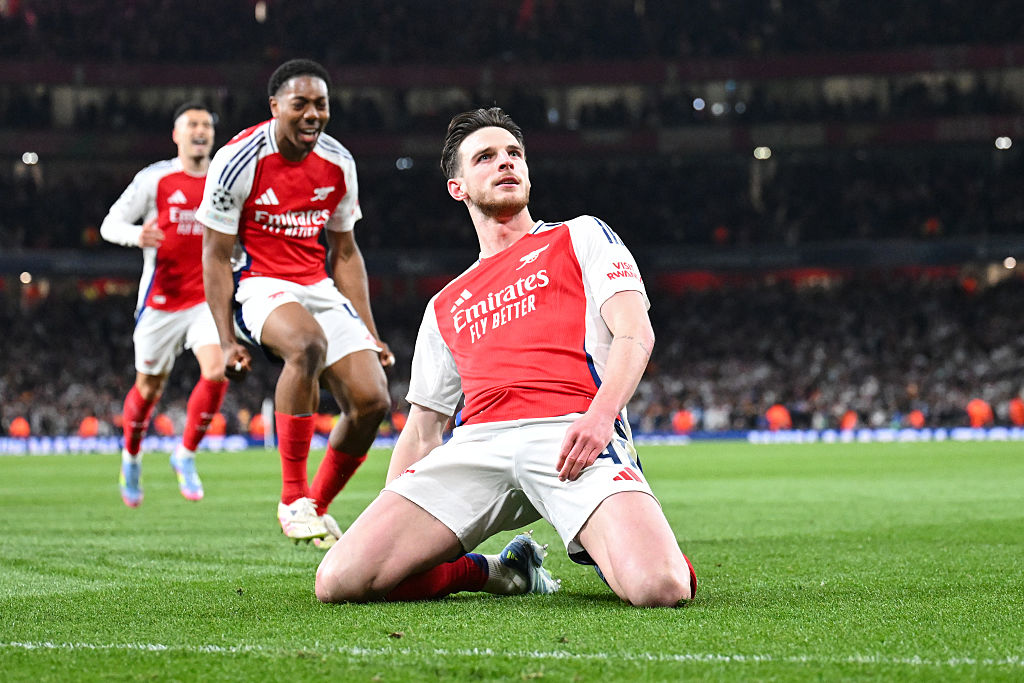Stats Zone World Cup 2014 Team of the Tournament
The best players in Brazil this summer - FACT.
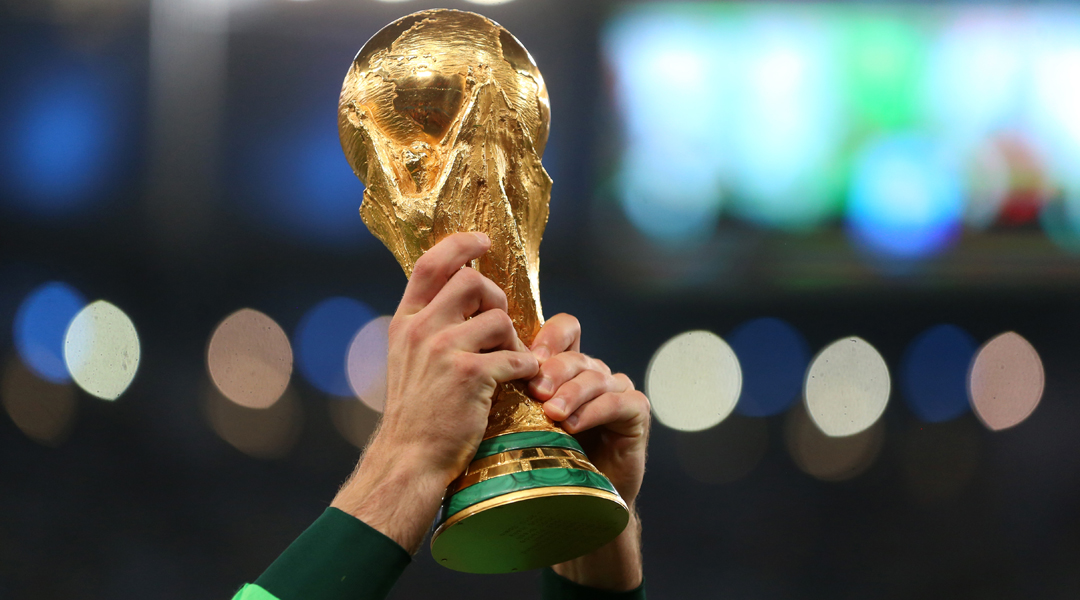
Everyone has an opinion. Not everybody can back them up with facts. That's one of the reasons for Stats Zone, FourFourTwo's Opta-powered data analysis tool which is free on iOS and freely available on your browser.
With that in mind, FourFourTwo's writers – who covered and analysed every single match at the World Cup using Stats Zone – got together with Opta's diligent fact-finders to separate hype from humble brilliance. The result is an XI that reflects a fascinating World Cup with factual back-up. Enjoy... and if you must argue, there's chance to do so at the end...
Many thanks to Opta and particularly Duncan Alexander
Goalkeeper: Manuel Neuer (GER)
Overall, Tim Howard made the most saves at this World Cup, but 15 of his 27 came in that one remarkable game against Belgium. And Keylor Navas had a higher percentage of shots saved, with a startling 91.3% – stopping 21 of the 23 accurate efforts on his goal, a total beyond the reach of Joe Hart (6 shots on target, 1 save).
Get FourFourTwo Newsletter
The best features, fun and footballing quizzes, straight to your inbox every week.
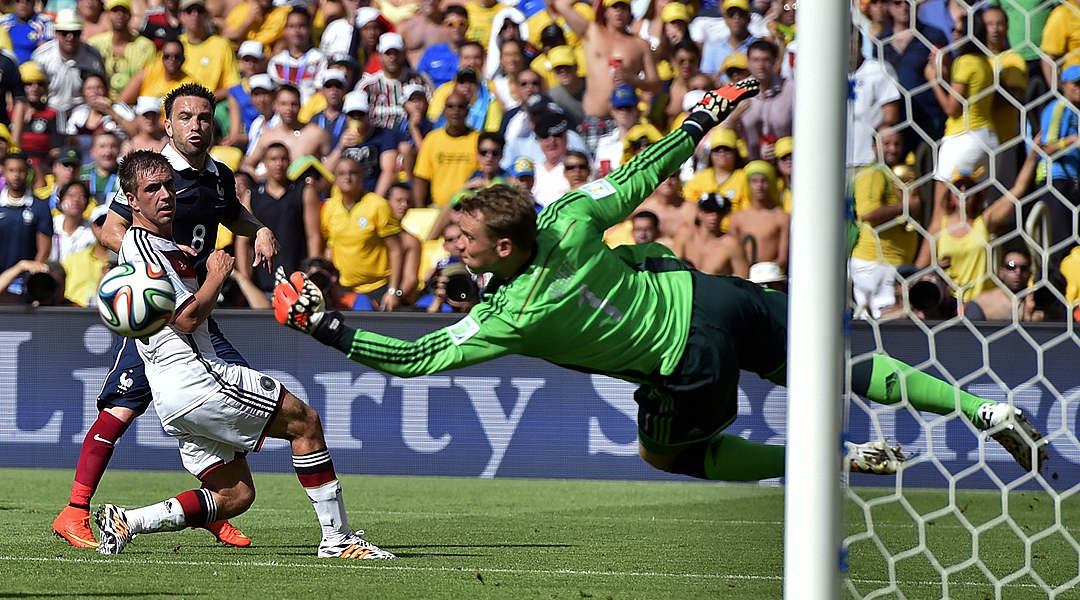
But always present in the background is Neuer. He made the second-most saves (24) and had the second-highest save percentage (85.19%). Throughout the tournament he was crucial: he saved 6 of Ghana's 8 accurate efforts, to secure a vital group-stage point; 3 of Algeria's 4 to see Germany into the quarter-finals, where he saved all of France's 5 – more than Germany managed; even in that remarkable semi-final he saved 7 of Brazil's 8 accurate attempts (compared to Julio Cesar's 3 of 10).
He was also quietly key to Germany's tactics. Despite having a somewhat one-paced defence, Jogi Löw's team could compress the midfield because their sweeper-keeper was usually there to tidy up and recycle the ball; his pass total of 170 was eight more than Neymar managed. Besides, if you argue with him, he may just come flying towards you knee-first – and he'll get the free kick, because he's a goalkeeper.
Right-back: Philipp Lahm (GER)
Lahm started the tournament in midfield, where he has been a key player all season for no less a judge than Pep Guardiola – but when injuries struck the squad, he moved back to his original right-back position and Germany's shape looked all the better for it. Not that Lahm had been poor in midfield, but his nous in the increasingly important position of full-back gave Jogi Löw's side a creative outlet they simply didn't have on the left, where the lumbering Benedikt Höwedes manfully but unproductively square-pegged.
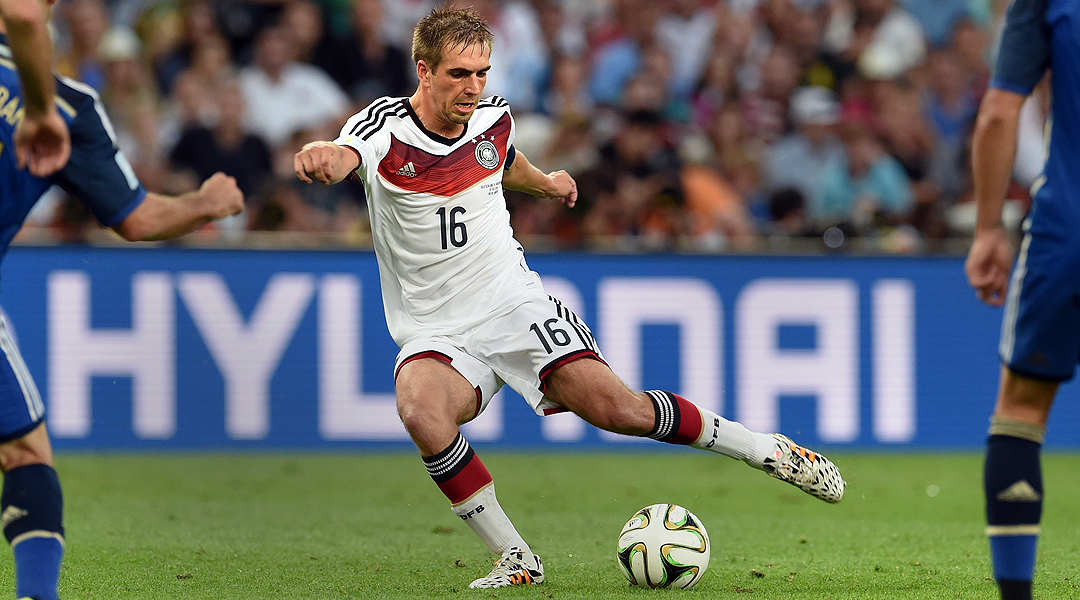
The captain was near the top of the tournament scores with and without the ball. Only Toni Kroos (605) made more passes than his 583, which he completed with 90.74% accuracy; only Kroos and Mesut Ozil made more passes in the final third. As for the dirty stuff, only five men made more blocks than his 5, and he provided 23 clearances – more than most, although he would always seek to create rather than clear.
With full-back being easily Germany's weak spot, the skipper sacrificed his new midfield position to help out where he was most needed at what may have been his last World Cup: he turns 31 in November, and of this squad only Miroslav Klose and reserve goalkeeper Roman Weidenfeller are older, and Lahm would easily be the biggest miss at Russia 2018. For all the plaudits given to Germany's overhauled youth system, how Löw must wish he had two or three young Lahms coming through the ranks.
Centre-back: Ezequiel Garay (ARG)
Argentina has a long tradition of none-shall-pass centre-backs who are also useful on the ball. The latest standard-bearer is Ezequiel Garay. He may have been a spare part at Real Madrid, eventually leaving as a makeweight in the deal that brought Fabio Coentrao from Benfica, but Garay was literally central to the backline of an Argentina side which only conceded once in seven-and-a-half hours of knockout football.
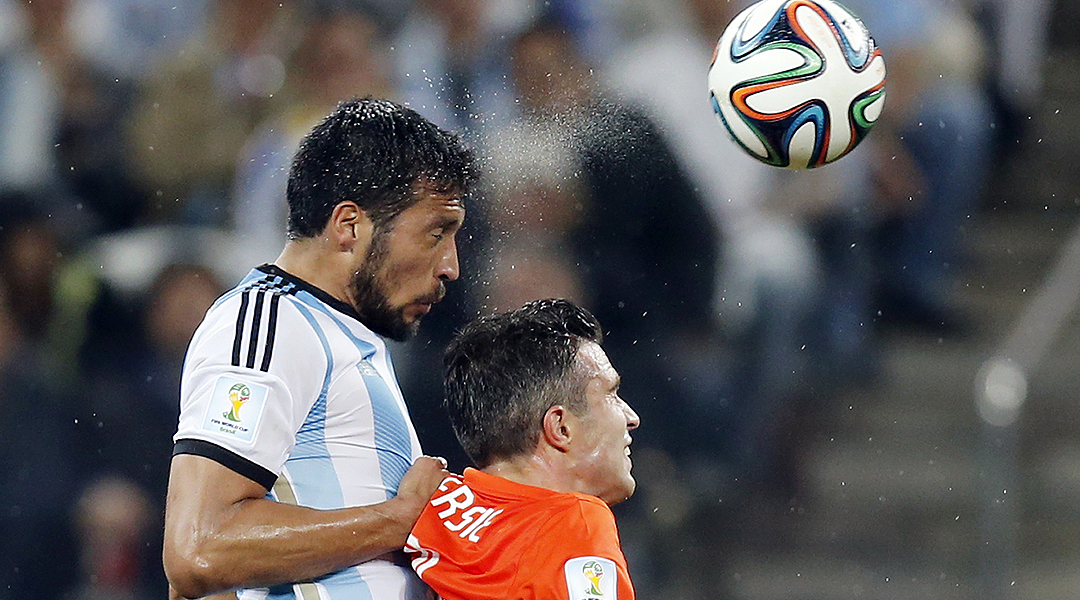
The 6ft 2in stopper contributed the tournament's most clearances (70) and most headed clearances (43). He also won 20 of his 26 aerial duels – only Daniel van Buyten and Marouane Fellaini won more. Furthermore, he knocked the ball around with confident precision; only 11 players made more passes than his calmly-accrued 321, and his 93.46% completion rate was the most accurate of the tournament's 50 busiest passers.
Garay deserved better than his third final defeat in a little over 12 months after Benfica's back-to-back Europa League runners-up slots. For the €6m fee they agreed with the Portuguese club mid-tournament, Zenit have got themselves a heck of a player.
Centre-back: Ron Vlaar (NED)
There was a moment early on in that era-ending group opener between Spain and the Netherlands when Diego Costa, the feared Chelsea-bound striker expected to take the world champions up another notch, was calmly robbed of the ball by Ron Vlaar, hitherto known to most Premier League watchers as the leader of a dodgy Aston Villa defence. As the inattentive youth of today might say: Wait, what?
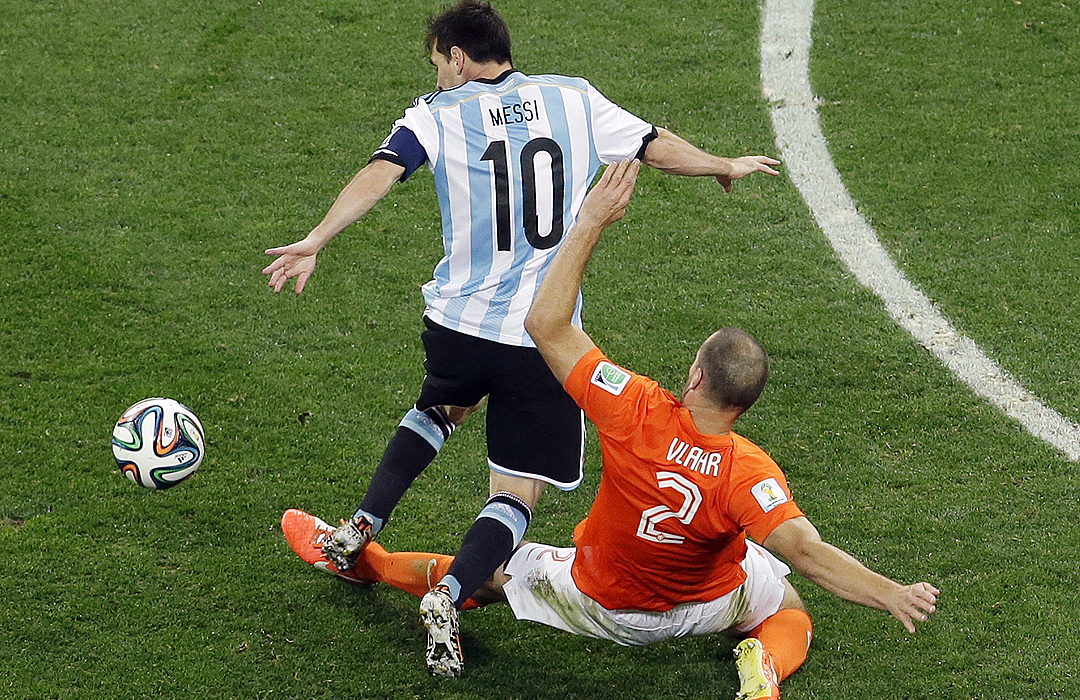
Truth is, Villa fans have known for a while how important "Concrete Ron" is to their team: of the seven games he missed last season, they lost six. At the World Cup, often playing in a three-centre-back formation which covered for any lack of pace, Vlaar was in his element.
Although he didn't top the tournament in any defensive category, he was high up the list for most: only Garay made more clearances (63) or headed clearances (38); only five men made more blocks than his 5. His 21 interceptions were topped only by team-mate Stefan de Vrij (25) and Brazil's Luis Gustavo (23), while only three men won more than his 18 aerial duels.
Left-back: Daley Blind (NED)
Like Lahm on the other side, Daley Blind's extended skillset enabled his manager to deploy him in a variety of roles. He proved himself capable of replacing the injured Nigel De Jong in defensive midfield – where he spent much of last season at Ajax, extending his knowledge – and as the left-sided centre-back during the semi-final against Argentina. But he was of most use in the position that demands the widest array of abilities: full-back.
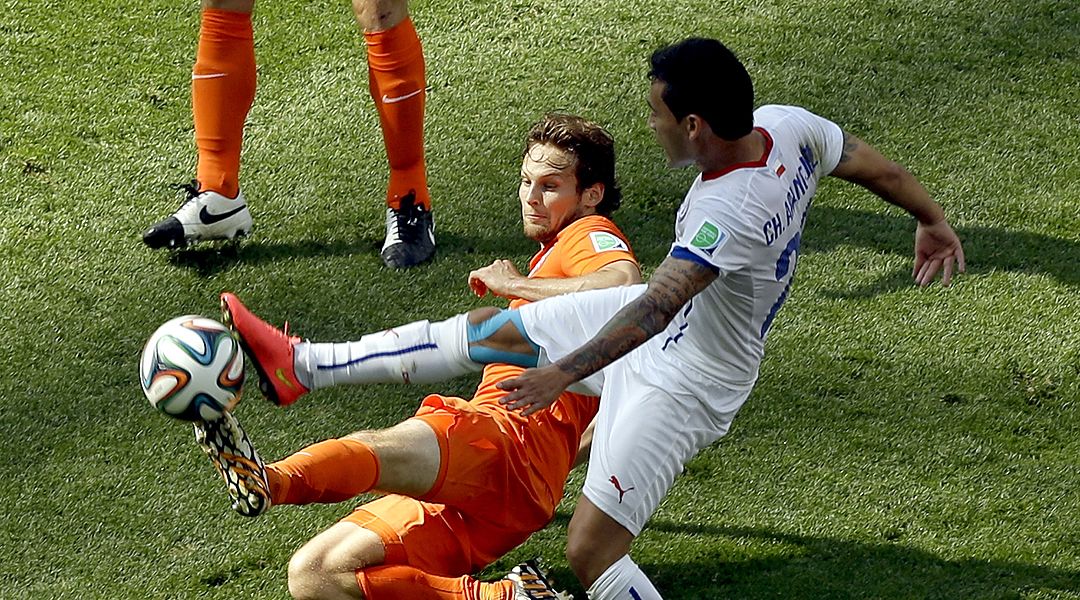
This was a tournament of excellent left-backs – Brazil's Marcelo created the most chances, Argentina's Marcos Rojo whipped in an extraordinary 29 crosses in open play, while Switzerland's Ricardo Rodriguez and Belgium's Jan Vertonghen also impressed – but Blind's versatility and all-round play caught the eye.
He made 22 tackles – the third highest among full-backs behind Argentina's Pablo Zabaleta (24) and Costa Rica's Cristian Gamboa (23) – plus 12 interceptions and 16 clearances. His pass total of 342 was topped by only nine players. He created eight chance, making three assists – only Juan Cuadrado (4) contributed more – and showed with his calm finish in the third-place play-off that he can score, too, even if it was his first goal on his 19th appearance. If he is given licence to roam up that left flank, the Dutch can expect more goals to come from that side.
Central midfield: Javier Mascherano (ARG)
The passing of time only makes it weirder that for six months in 2006, Javier Mascherano could barely get a game for a West Ham side who couldn't buy a win. The Argentine is quite probably the best holding midfielder on the planet, a man so at home with the defensive arts that he frequently gets deployed at centre-half by Barcelona, yet Alan Pardew preferred Hayden Mullins.
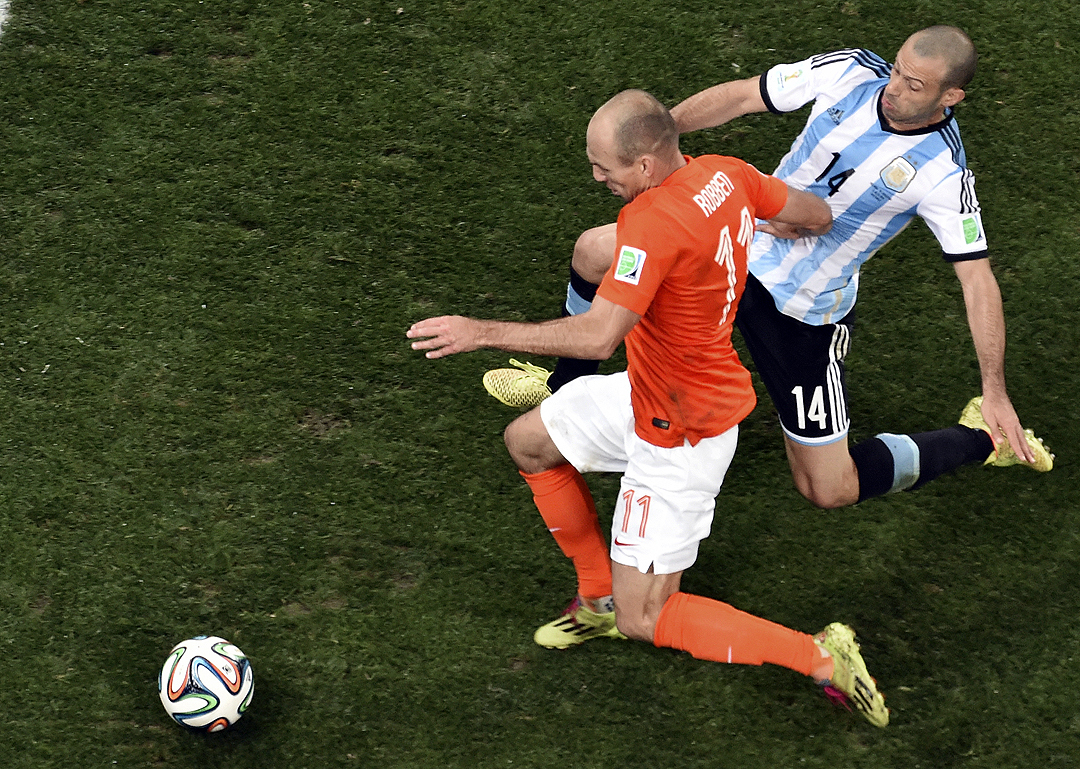
At the heart of a well-organised team in Brazil this summer, Mascherano stacked up impressive numbers across all relevant categories. He made the most tackles (30) and only Toni Kroos and Philipp Lahm made more passes than his 576, which he completed with 89.41% accuracy. Among midfielders, only Luis Gustavo made more interceptions than his 16; only defenders made more blocks than his 6. He also won 55 of his 83 duels, a much better average than most.
Perhaps the best example of Mascherano's play came in the semi-final against the Netherlands. With seconds of normal time left, opposition dangerman Arjen Robben latched onto a clever flick from Wesley Sneijder, bore down on goal and unleashed a shot. Apparently out of nowhere came a horizontal Mascherano, stretching out his right leg to block the shot with perfect timing and accuracy. Robben had fooled every Argentine except that final gatekeeper, whose intervention kept his team in the tournament.
Central midfield: Oscar (BRA)
If not much went right for Brazil this summer, it's not Oscar's fault. Although overshadowed by Neymar (like everything else in Brazil bar Christ the Redeemer), the 22-year-old put a disappointing end to Chelsea's season behind him with several World Cup performances displaying a workrate and diligence not exactly shown by all his comedic compatriots.
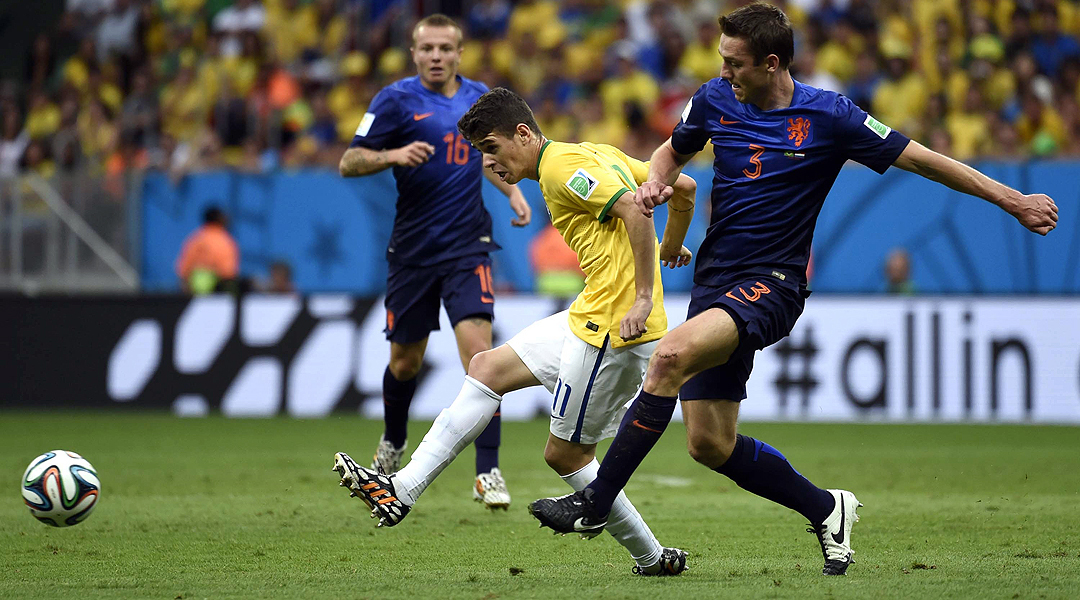
It's telling that although usually played in the 3 of Brazil's 4-2-3-1, Oscar's numbers match those of a more all-round midfielder. Only Mascherano attempted more tackles than his 26; on a per-minute basis the two South Americans are virtually indistinguishable. On the ball, he made 262 passes (107 in the attacking third) and created 8 chances, while only Messi, Robben and Alexis Sanchez took part in the most duels – and only the first two won more.
Attacking midfield: Arjen Robben (NED)
When this World Cup recedes far enough into history to be represented by a few brief memories – Vines of the mind – one of them will be Arjen Robben running at terrified defenders on a rapid counter-attack. Against Spain he clocked up 23mph and made Sergio Ramos, hardly a lardy lump, look like he was running through custard.
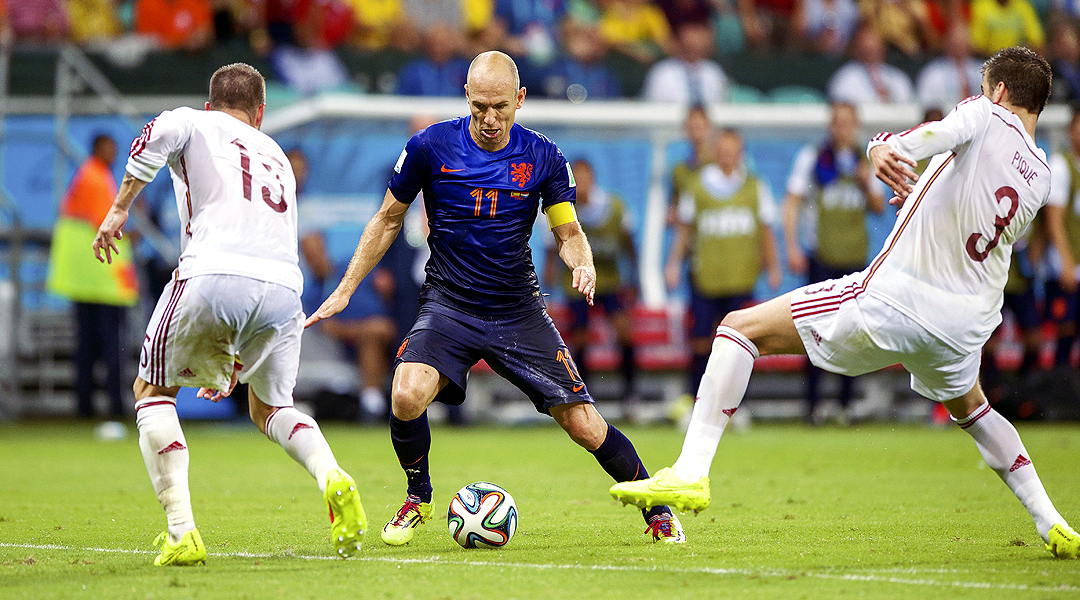
The avatar of the low-possession counter-attacking football to which half the world now subscribes, Robben clearly loved taking on opponents: only Messi attempted more duels (128 v 141) and won more (70 v 75), and only Messi created more overall chances than his 17.
But the Dutchman wasn't all about tearing up the space between the halfway line and the box: only Thomas Müller (47) had more touches in opponents' area than Robben's 45; only Karim Benzema and Robin van Persie got more shots on target than his 9, and it's worth noting that he only put one effort off-target. If only his team-mates had shared his accuracy in that drab semi-final – only one of the seven Dutch efforts was on-target – he might have reached a final against many of his Bayern team-mates in a team not blessed with quick defenders...
Attacking midfield: James Rodriguez (COL)
Only the English media could hail as a "breakout" star someone who was transferred last summer for €45m, although that says as much for Monaco's financial exceptionalism as it does this country's Anglocentrism (with the odd exotic exception – a sprinkle of Spanish football, a dash of Serie A). But World Cups heighten profiles, and James Rodriguez has seen his raised to the point where he has attracted the inevitable attention of that habitual butterfly collector Florentino Perez at Real Madrid.
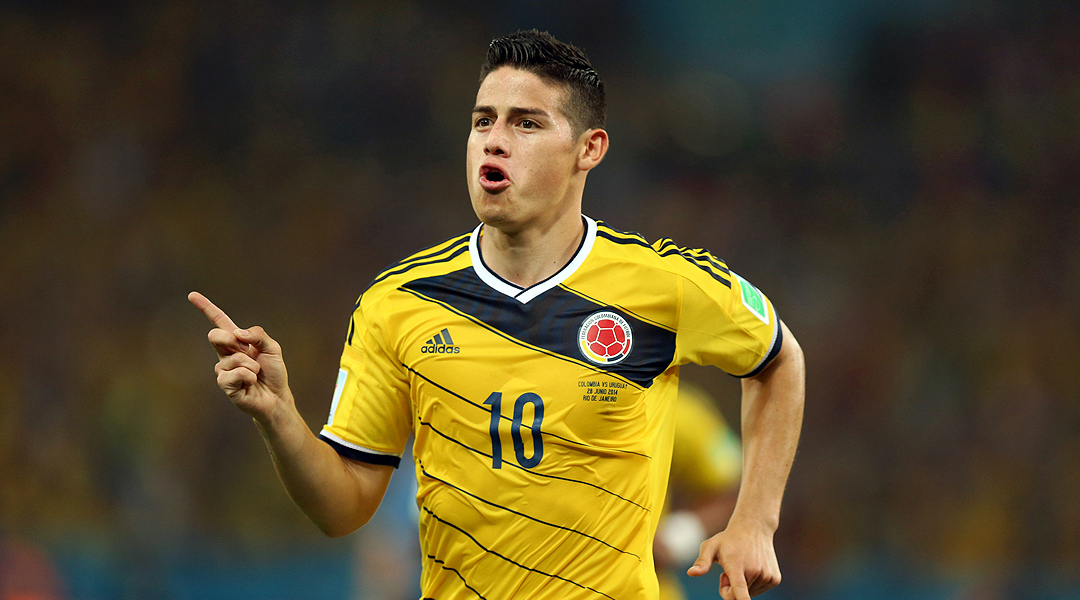
However you pronounce his forename – and it seemed to provoke more debate than anyone could possibly care about – Rodriguez was the central creative pivot in an attractive, effective Colombia team. Only four men made more assists, and he created 12 chances.
But it was as a more direct threat that Rodriguez caught the eye. More second striker than trequartista, he won the Golden Boot for his six goals; these came from just nine shots (a 66.6% conversion rate), of which he got eight on target (88.8% accuracy). And just to further float Florentino's boat as he imagines the marketing possibilities, the 23-year-old is also annoyingly good-looking. But is he happy? Probably, yes.
Attacking midfield: Mesut Özil (GER)
There's something about Özil that inspires dislike and derogation. Perhaps it's the expectations rested upon those slumping shoulders: if the majority of communication is non-verbal, his body language during the hard times speaks volumes.
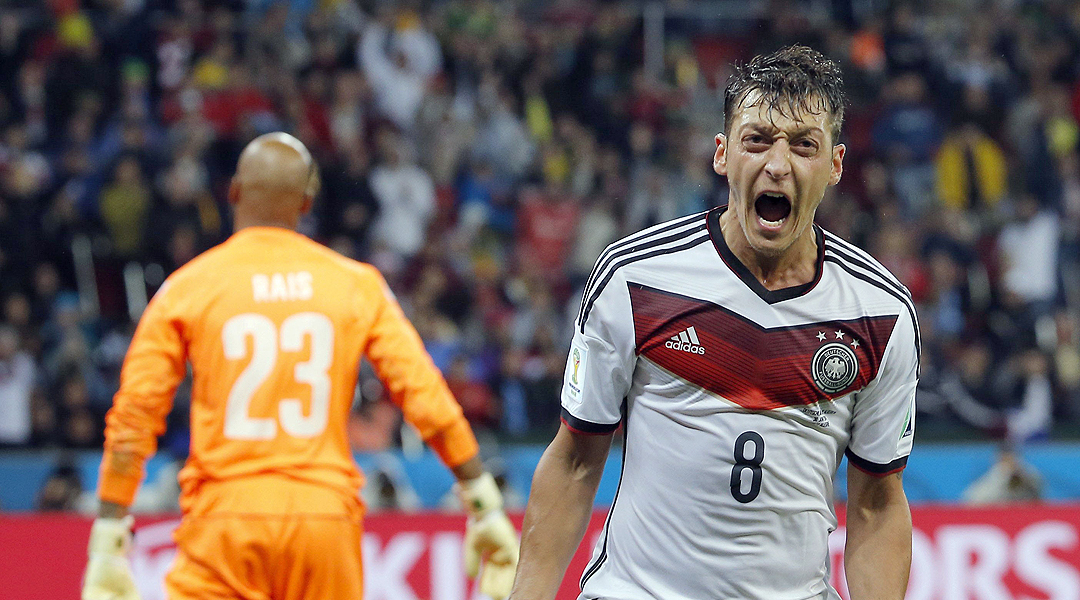
But Özil was punching the air after a World Cup in which his feet had done the talking. Only Messi created more overall chances than his 17, of which only two were set-pieces. He made 365 passes, the highest of any attacking midfielder and 7th overall; an unsurpassed 210 of these were in the final third.
He may have only recorded one assist but it's hardly his fault if his team-mates missed 16 chances he set up. Germany's team ethic took them all the way and Özil, never the attention-seeker, was happy to be one of several good players. It's something Arsene Wenger will have noticed as he continues to rebuild Arsenal with the Emirates booty.
Forward: Thomas Müller (GER)
He didn't even play up front for a goodly proportion of the World Cup, subjugated to the almost parodic throwback centre-forward Miroslav Klose. But Thomas Müller is the modern forward, a flexible friend who can "do a job" in any position, and what a job.
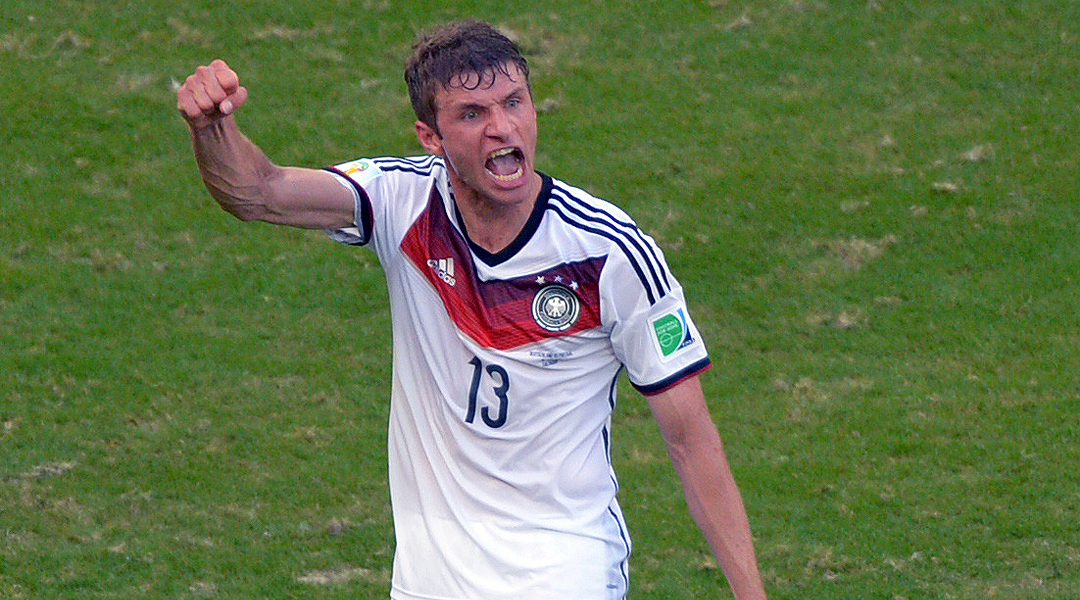
Only James Rodriguez scored more goals; Müller bagged five from just 14 shots, of which eight were on target (by comparison, in three games Cristiano Ronaldo had 22 shots, of which nine were on target). He got three assists – only Juan Cuadrado contributed more – and nobody created more chances in open play (although Leo Messi matched his 17); of the forwards, only Messi and Dirk Kuyt (here often a wingback) made more passes. Shwoing his complete comfort up the sharp end, he had the most touches in the opponents' area (47), and only Marouane Fellaini and Islam Slimani contested more aerial duels than his 32 – evidence of his fitting physicality.
Successfully ending an era, Klose scored his record-breaking 16th World Cup finals goal to close an account he had opened in 2002, eight days before his 24th birthday. By the same age Müller had already scored five, doubling that this summer; at this rate, by the time he's Klose's age he'll have 25 World Cup finals goals – and who knows how many winners' medals.
Disagree with our XI? Tell us why at our Facebook page
Gary Parkinson is a freelance writer, editor, trainer, muso, singer, actor and coach. He spent 14 years at FourFourTwo as the Global Digital Editor and continues to regularly contribute to the magazine and website, including major features on Euro 96, Subbuteo, Robert Maxwell and the inside story of Liverpool's 1990 title win. He is also a Bolton Wanderers fan.
